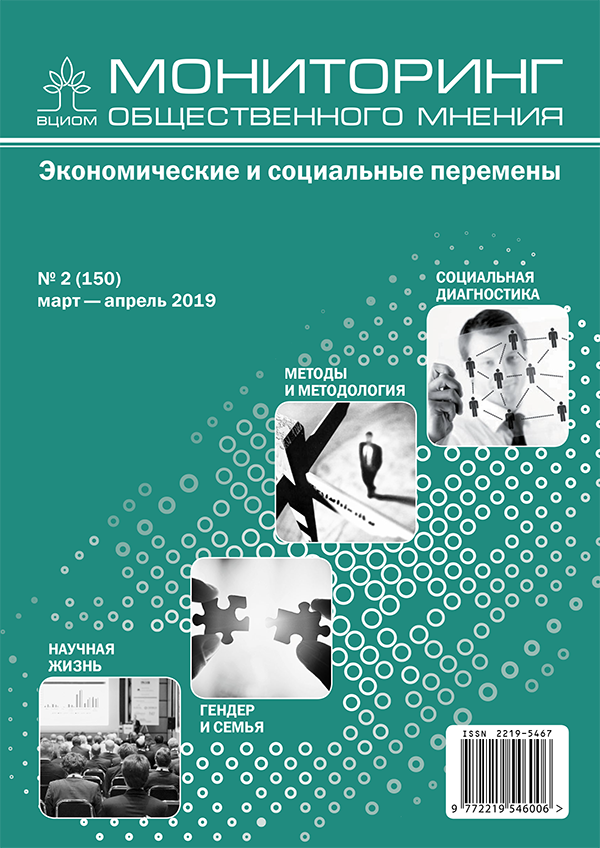Karl Marx’s empirical social research
DOI:
https://doi.org/10.14515/monitoring.2019.2.21Keywords:
marxist sociology, methodology, empirical research, document analysis, inquiry, survey, social reality, social statisticsAbstract
In 2018 was the bicentennial of Karl Marx, which became famous in sociology, not as a competent empiricist, but as a great theorist. The article notes that the ideas, concepts, problems developed by Marx in philosophical, historical, economic and journalistic works are sociological in their essence and contribute to the development of sociology as a science. Marx was one of the first who used empirical social research in theoretical works. Methodologically, like positivists, he considered that it is possible to use methods of natural science in the analysis of social phenomena. Even in his early journalistic works of 1842-1843 years, Marx studied the situation of winemakers in the Moselle valley, using the analysis of official documents, letters and survey results. The analysis of the press and statistical materials was rather important in his work. "A Workers’ Inquiry" written by Marx in 1880 is clear evidence of the fact that he considered statistics not only as a means of identifying the situation in society but also as a tool for its transformation, necessary to act with some chances of success. "A Workers’ Inquiry", published in April 1880 in the French journal "La Revue Socialiste", retains some interest for empirical sociology. "A Workers’ Inquiry" contained 99 questions grouped into four sections: features of the company and working conditions, working time and commute time, the employment and wages, information on unions, strikes, friendly societies. In preparation of "Capital" - his main work - Marx analyzed a huge amount of economic and statistical data.
He showed that the phenomena of social life are mass phenomena, and special methods are needed to comprehend it.






